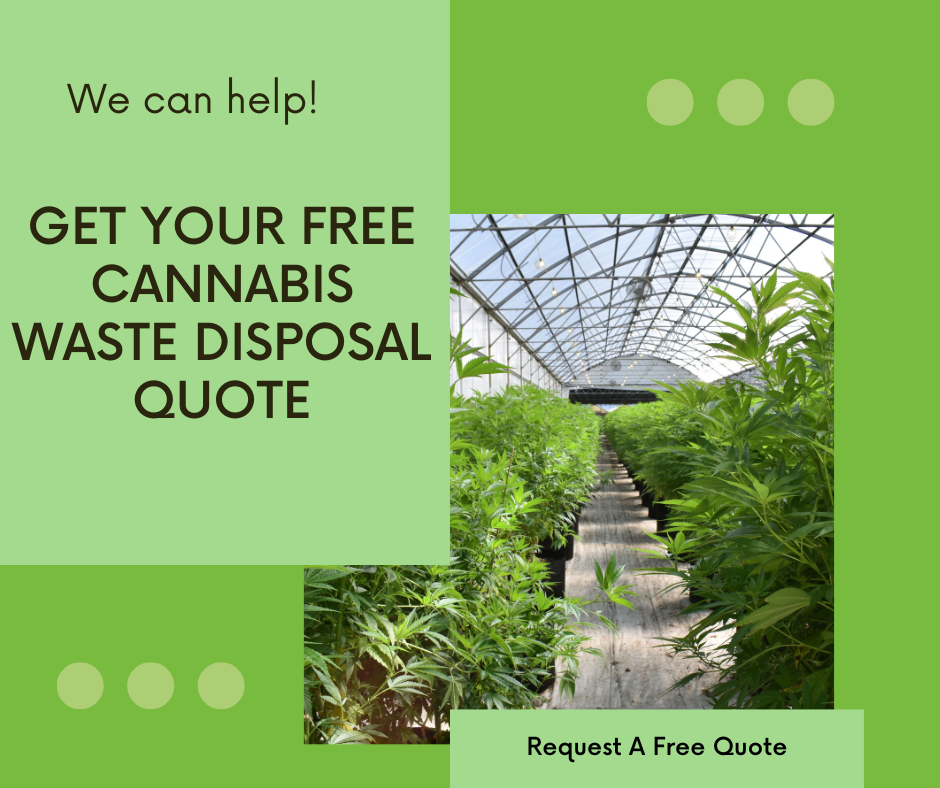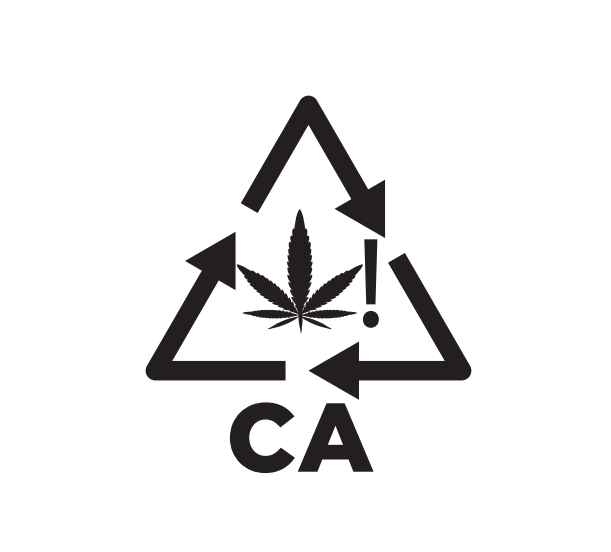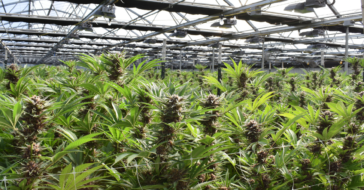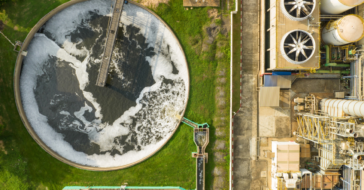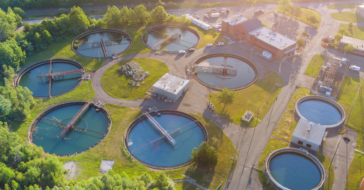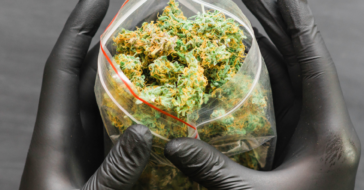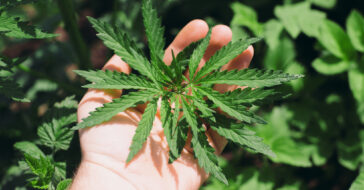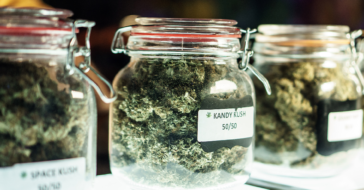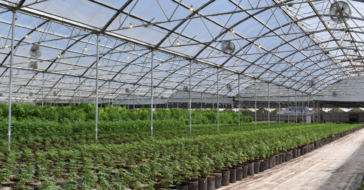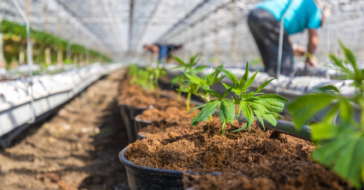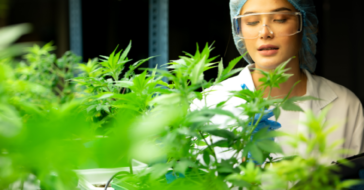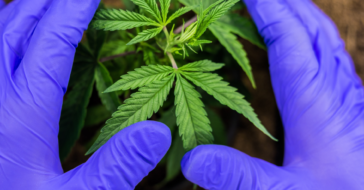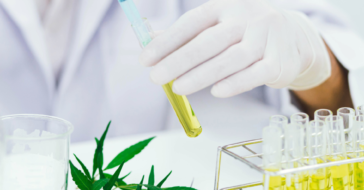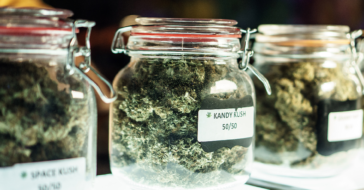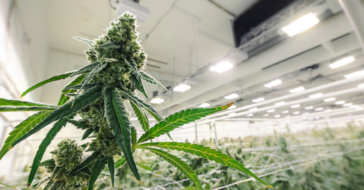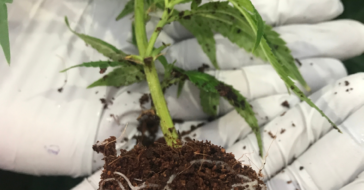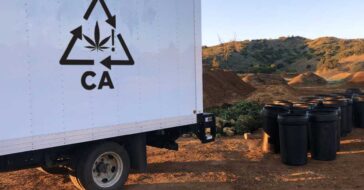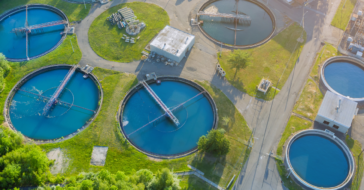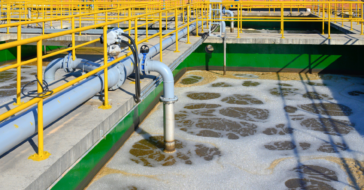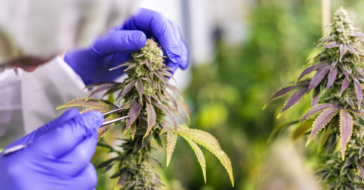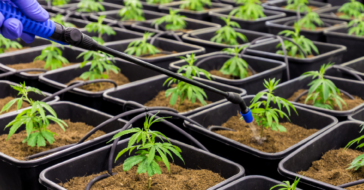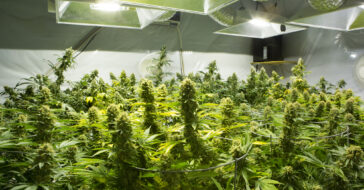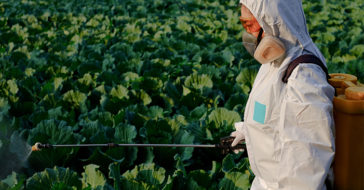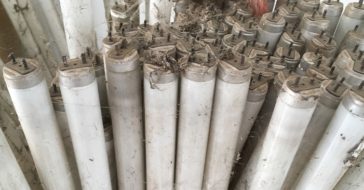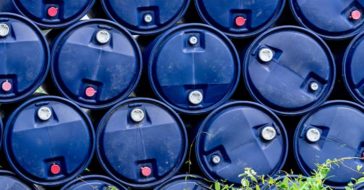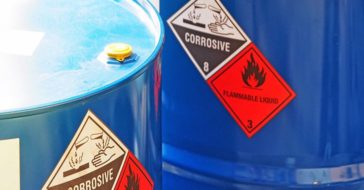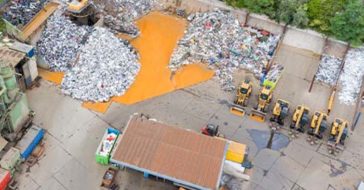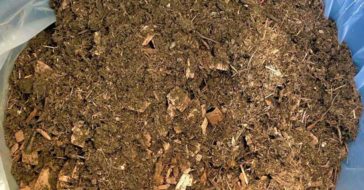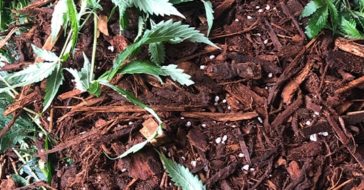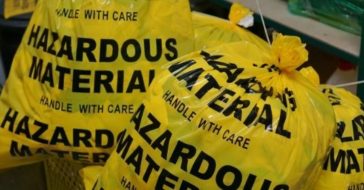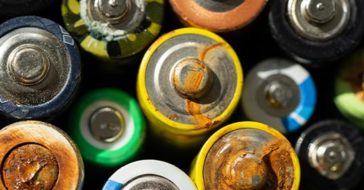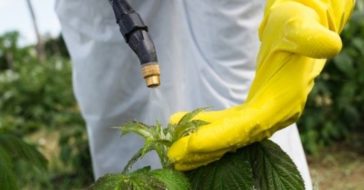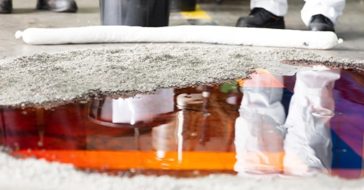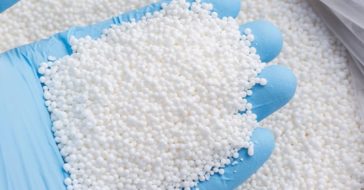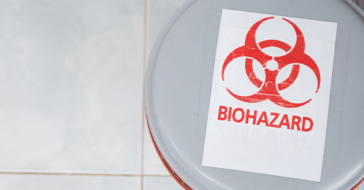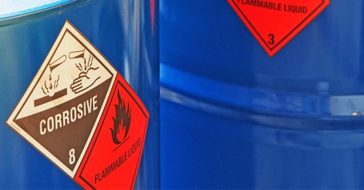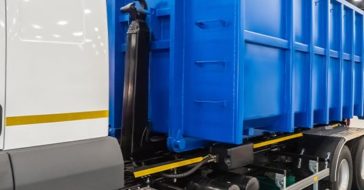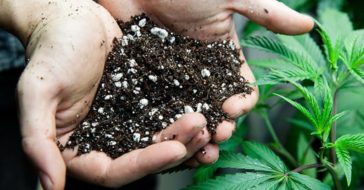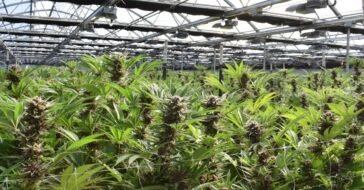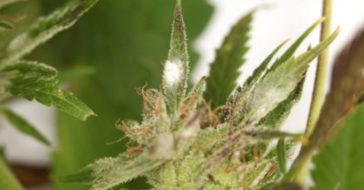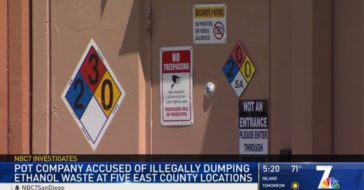While growers often rely on fertilizers to enhance the growth and yield of cannabis plants, the use of these substances can pose several environmental issues.
Over-fertilization can lead to nutrient runoff, contaminating nearby water sources and harming local ecosystems. Synthetic fertilizers, often rich in salts and chemicals, can degrade soil quality over time.
There’s also the risk of introducing heavy metals and pathogens into the soil, which can accumulate and affect both plant health and environmental safety.
If your business grows cannabis plants, it’s crucial to use fertilizers responsibly and implement sustainable practices to mitigate these potential problems. However, you still may find yourself in need of hazardous waste disposal assistance – either with the chemicals themselves or if soil contamination occurs.
Cannabis Fertilizer Types
Fertilizing cannabis plants involves providing them with the essential nutrients they need for healthy growth and development.
healthy growth and development.
Here are some common types of fertilizers for marijuana plants used in the cannabis industry today:
Nitrogen (N)
- Importance: Crucial for leaf and stem growth
- Sources: Ammonium nitrate, urea, blood meal, fish meal
Phosphorus (P)
- Importance: Promotes root development and flowering
- Sources: Bone meal, rock phosphate, fish meal
Potassium (K)
- Importance: Supports overall plant health, disease resistance and water regulation
- Sources: Potassium sulfate, wood ash, kelp meal
Calcium (Ca)
- Importance: Important for cell wall structure and root health
- Sources: Lime, gypsum, crushed eggshells
Magnesium (Mg)
- Importance: Central element of chlorophyll, important for photosynthesis
- Sources: Epsom salts, dolomite lime
Sulfur (S)
- Importance: Essential for protein synthesis and enzyme function
- Sources: Gypsum, elemental sulfur
Organic vs. Synthetic Fertilizers
- Organic Fertilizers: Derived from natural sources, such as compost, manure, bone meal, fish emulsion and worm castings, organic fertilizers are slow-releasing and improve soil health over time.
- Synthetic Fertilizers: Synthetic fertilizers are manufactured chemical compounds that provide immediate nutrient availability. Examples include commercial nutrient solutions, granular fertilizers and water-soluble mixes.
Specialized Cannabis Nutrients
Many companies produce fertilizers specifically designed for cannabis at different growth stages.
For the vegetative stage, fertilizers may be higher in nitrogen to support leaf and stem growth. At the flowering stage, fertilizers may be higher in phosphorus and potassium to enhance bud development.
Cannabis plants also require micronutrients like iron, manganese, zinc, copper, molybdenum, boron and chlorine in small amounts. These are often included in balanced nutrient solutions.
Using a balanced and tailored fertilization approach is crucial for optimal cannabis growth and yield.
Potential Sources Of Contamination
While cannabis fertilizers provide many benefits for growers, using it can potentially cause soil contamination if not managed properly. Here are some ways this can happen and how to mitigate the risks.
Over-fertilization
Risk: Excess nutrients can lead to nutrient runoff, contaminating nearby water sources and harming local ecosystems.
Mitigation: Use fertilizers at recommended rates and schedules, and monitor soil nutrient levels regularly.
Synthetic Fertilizers
Risk: Synthetic fertilizers often contain salts and chemicals that can build up in the soil over time, leading to soil degradation and reduced fertility.
Mitigation: Alternate with organic fertilizers and use soil amendments to improve soil health.
Heavy Metals
Risk: Some fertilizers, especially those of lower quality, may contain heavy metals like lead, cadmium and arsenic. These can accumulate in the soil and be taken up by plants.
Mitigation: Use high-quality, tested fertilizers and consider periodic soil testing for heavy metals.
Pathogens
Risk: Organic fertilizers like manure or compost can introduce pathogens if not properly treated or composted.
Mitigation: Ensure organic fertilizers are fully composted and sourced from reputable suppliers.
Chemical Residues
Risk: Fertilizers can contain residues of pesticides or herbicides that can persist in the soil.
Mitigation: Choose organic fertilizers certified to be free of chemical residues and avoid using combined fertilizer-pesticide products.
6 Best Practices To Prevent Soil Contamination
There are steps you can take as a cannabis grower to help keep the environment around your facility safe. Here are six best practices to prevent soil contamination:
- Soil Testing: Regularly test the soil to monitor nutrient levels and identify any potential contaminants.
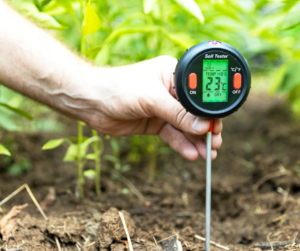
- Proper Application: Apply fertilizers according to the specific needs of the cannabis plants and the soil conditions.
- Integrated Pest Management (IPM): Implement IPM practices to reduce the need for chemical pesticides and fertilizers.
- Buffer Zones: Establish buffer zones to prevent fertilizer runoff into water bodies and neighboring areas.
- Use of Organic Fertilizers: Prefer organic fertilizers which are less likely to cause long-term soil contamination and improve soil health over time.
- Composting: Use well-composted organic matter to enhance soil structure and fertility naturally.
By following these guidelines, you can minimize the risk of soil contamination while effectively fertilizing cannabis plants.
How A Disposal Company Can Help
Despite your best efforts, you may find yourself in need of help to remove hazardous waste from your growing facility. Whether you’ve discovered contaminated soil, or you simply need to safely dispose of excess fertilizers, an experienced hazardous waste disposal company can help.
Managing unwanted chemicals and contaminated soil can be a complex and challenging task, but a specialized disposal company can provide comprehensive solutions to ensure safe and effective handling. Here’s how a disposal company experienced in meeting cannabis waste disposal requirements can assist.
Safe Disposal Of Unwanted Chemicals
Disposal companies can accurately identify and classify various chemicals, ensuring they are handled according to regulatory requirements. They also have the expertise to manage the packaging and transportation process, minimizing the risk of spills and accidents.
Many companies use environmentally friendly cannabis waste disposal processes, such as recycling or neutralizing chemicals, to minimize environmental impact.
Management Of Contaminated Soil
Disposal companies can perform thorough soil assessments to determine the type and extent of contamination. This includes soil sampling and laboratory analysis to identify contaminants.
Based on the assessment, they can develop a tailored remediation plan. This plan outlines the steps needed to remove or neutralize contaminants and restore soil health.
Contaminated soil may also need to be excavated and removed if remediation strategies like bioremediation or other soil treatments do not work. Disposal companies have the equipment and expertise to safely perform this task, ensuring that contaminated soil is properly contained and transported to a suitable disposal facility.
Continuous monitoring is often necessary to ensure that the remediation efforts are successful and that no residual contamination remains. Disposal companies can offer ongoing soil testing and monitoring services.
Documentation And Reporting
Maintaining detailed records of disposal and remediation activities is crucial to meeting regulatory requirements. The best disposal companies will offer comprehensive documentation that can be used for reporting and to demonstrate compliance with environmental laws.
Disposal companies can also assist with conducting environmental audits to verify that all disposal and remediation activities meet required standards.
Consultation And Training
The best disposal companies will offer consultation services to help you understand the best practices for handling hazardous materials and contaminated soil. They also will provide training for your staff on safe handling, storage and disposal of hazardous chemicals to prevent future contamination.
By leveraging the expertise of a specialized disposal company, you can ensure that unwanted chemicals are disposed of safely and that contaminated soil is effectively managed, protecting both the environment and your business from potential risks and liabilities.

